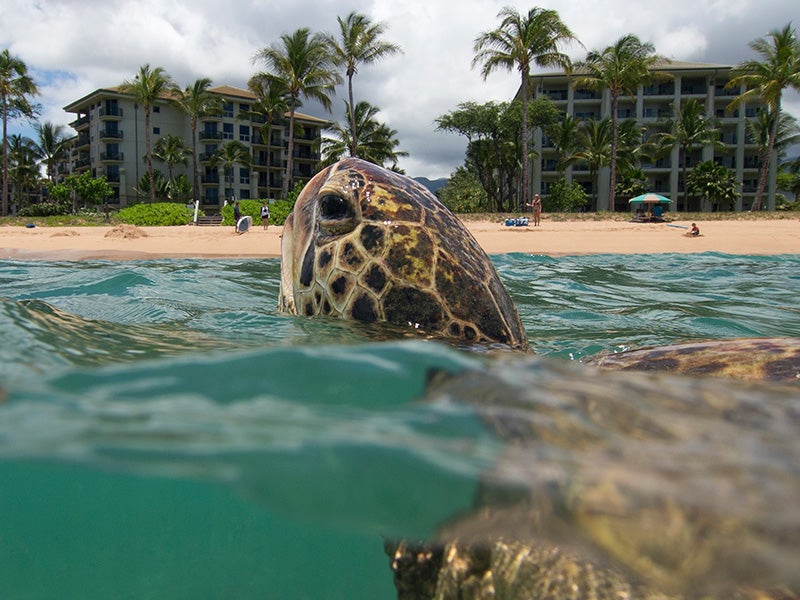Supreme Court Leaves the Clean Water Act Intact
Victory
—Court decision leaves in place vital protections for the nation’s oceans, rivers, lakes
Contact
Today the Supreme Court issued its opinion in County of Maui v. Hawaiʻi Wildlife Fund siding with clean water advocates that point source discharges to navigable waters through groundwater are regulated under the Clean Water Act.
The following is a statement from David Henkin, Earthjustice attorney who argued the case defending clean water:
“This decision is a huge victory for clean water. The Supreme Court has rejected the Trump administration’s effort to blow a big hole in the Clean Water Act’s protections for rivers, lakes, and oceans.
“We will have to return to the lower court to confirm this, but we fully expect that Maui County’s sewage plant will be required to get a Clean Water Act permit as a result of the Court’s decision today. That permit will require the County to protect the ocean from sewage discharges in a way it has refused to do to date.
“We are glad the Court has recognized the importance of protecting clean water for all Americans.”
The court held that the Clean Water Act “require[s] a permit if the addition of the pollutants through groundwater is the functional equivalent of a direct discharge from the point source into navigable waters.” In other words, the Clean Water Act prohibits unpermitted discharge of pollution “into navigable waters, or when the discharge reaches the same result through roughly similar means.” In doing so, the Court rejected the Trump administration’s polluter-friendly position in the clearest of terms: “We do not see how Congress could have intended to create such a large and obvious loophole in one of the key regulatory innovations of the Clean Water Act.”
The opinion was written by Justice Breyer with a vote of 6-3; with Chief Justice Roberts joining the opinion, along with Ginsburg, Sotomayor, Kagan, and Kavanaugh.
Resources
Background
County of Maui v. Hawaiʻi Wildlife Fund is a case concerning a wastewater treatment facility in Maui that discharges millions of gallons of treated sewage each day into the Pacific Ocean via the groundwater beneath the facility, devastating a formerly pristine reef. Read an explainer on this case.
Top: Jennifer Smith; Bottom: Marley Rutkowski
At top, a healthier, undamaged area of the reef offshore of Kahekili Beach Park away from the wastewater discharges. At bottom, coral damage resulting from wastewater effluent discharges offshore of Kahekili Beach Park, Aug. 19, 2019.
The county argued it does not require Clean Water Act permits for its pollution because it is not discharging “directly” into waters of the U.S., but instead pollutes via groundwater.
The Environmental Protection Agency, which previously filed an amicus brief in the Ninth Circuit supporting clean water advocates’ argument against Maui County, reversed its position under President Trump. This reversed four decades of previous EPA practice — under Republican and Democratic administrations — that the Clean Water Act regulates discharges of pollution that reach waters of the U.S. through groundwater.
A federal court in Hawaiʻi and the 9th Circuit Court of Appeals both found that Maui County was operating in violation of the Clean Water Act. The Supreme Court’s decision solidifies the Clean Water Act’s place as one of the nation’s most effective environmental laws.
Read the opinion:

Additional Resources
About Earthjustice
Earthjustice is the premier nonprofit environmental law organization. We wield the power of law and the strength of partnership to protect people's health, to preserve magnificent places and wildlife, to advance clean energy, and to combat climate change. We are here because the earth needs a good lawyer.